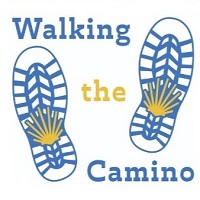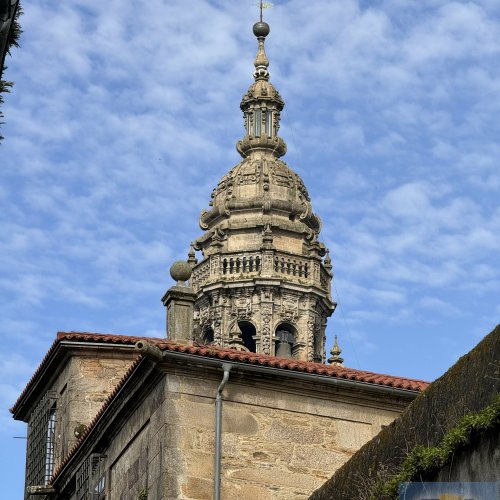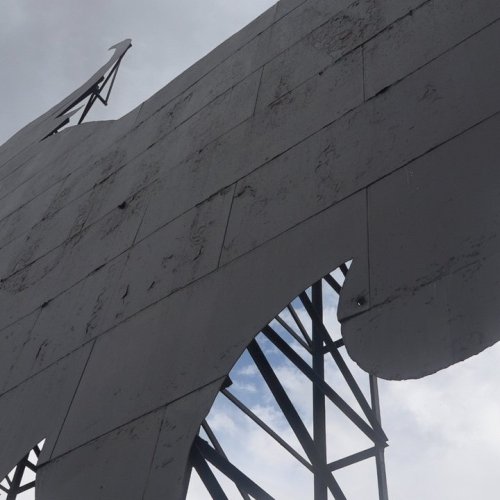The Cathedral authorities have long made it clear that they accept the credentials issued by national pilgrims' organizations, not just the documents issued by them. This is a longstanding practice, and was reaffirmed at meetings with the Cathedral and the associations at the time of the first international Camino associations conference held in Santiago in 2015.
Yes, I know. But, I think it makes little sense that the Cathedral authorities want to emphasize the Christian sense of the pilgrimage at the same time they accept a
credencial that deleted the reference(s?) it had to that Christian sense. IMHO, it only makes sense if the Cathedral authorities aren't (fully) aware of what's the current text of the
credencial of whatever associations don't include that sort of references at the moment what leads to the question: Would those
credenciales by refused once the Cathedral realized their lack of references to the Christian sense of the pilgrimage? Although, of course, the first question may be: Are the Cathedral authorities fully aware of the current text of each of the
credenciales that they accept as valid?
BTW, The Cathedral authorities established a máximum price of 2 Euros for the credencial and it seems the CCoP charges more...
In terms of your last question, I don't know if anyone thought that a Cathedral-specific reference was necessary, and almost 700 CCoP credentials with that wording have been accepted in Santiago, and compostelas issued on that account.
Maybe I'm the only one who finds odd that a
credencial states that it identifies you as a pilgrim to the refugios or albergues along the route (i.e.: to the owners and the staff of accommodations along your route) but doesn't state that it identifies you to the people in charge of your destination (i.e.: the Cathedral authorities and the staff of the places runned by them)?
I suspect any form of differentiated credentials would result in differentiated treatment of pilgrims; that is to say, separate is inherently unequal.
That's why I said above I think the only difference should be in the text on them that one sort would include references to the Christian sense of the pilgrimage and the other type wouldn't include that sort of references. In other words, differences in the
small print that barely anyone reads.
What if the Church/Organization ran out of the religious credentials? Would you accept a non religious one?
For a religious person, the word pilgrim has a religious meaning so any credencial including that word would be a religious one even if it doesn't include specific/explicit religious references.
If people actively refusing Christianity (and other religions) have been able to accept a
credencial explicitly presenting them as people making a pilgrimage with a Christian sense, I think Christians can be open-minded enough as to accept a credencial without explicit references to the Christian sense of the pilgrimage (that wouldn't include either explicity references against its Christian sense) if the
credenciales explicitly stating the Christian sense of the pilgrimage were sold out. Those unwilling to get a credencial that didn't explicitly state the Christian sense of the pilgrimage would have the same options that exist now if one entity runs out of
credenciales: to look for a
credencial somewhere else or to wait till that entity have them available once again.
As some have said, it is only for bed,
...and to get a Compostela or a welcome certificate if you were interested.
Some people still haven't picked up on this aspect even when they get to Santiago, and they can get the Welcome Certificate. I'd be interested in knowing what percentage do.
Official statistics can be found at:
http://oficinadelperegrino.com/estadisticas There isn't info about the % of people that get a Welcome Certificate but there's info about the % that claim at the pilgrims' office to have made the pilgrimage for religious reasons, for a mix of religious and cultural reasons and just for cultural reasons. It's the last group the one that leads me to wonder:
How can a
credencial that states it's just for pilgrims making the pilgrimage with a Christian sense serve as a proof that you made it just for cultural reasons? Shouldn't these pilgrims have access to a type of
credencial that didn't present them as pilgrims making the pilgrimage with a Christian sense?
In the end, it's a pilgrimage. If you really aren't comfortable with at least a spiritual aspect (self-reflection? - as oursonpolo says, the official definition is pretty wide) then there are plenty of GR routes and other trails around Europe you can use.
Are you suggesting that the people that walk (or ride) (one of) the Camino(s) de Santiago refusing anything Christian and/or spirituality related shouldn't walk (or ride) it?
Let's face it: there's people that walk a
Camino de Santiago and refuses any Christian and/or spiritual sentiment/reasons. They are making it, for example, to accompany a relative or a group of friends, or because they like hiking and it's the cheaper they can afford (or so they think) or because someone told them about it but didn't told them it was a pilgrimage or...




















